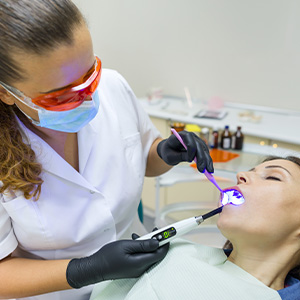
Sedation dentistry refers to the use of medication to help patients remain calm and relaxed throughout their dental appointments.
Who Can Benefit From Sedation Dentistry?
- Patients who experience dental anxiety can benefit from sedation dentistry. Sedation dentistry may also be recommended for those with strong gag reflexes or those who are undergoing extensive dental work.
- Sedation dentistry helps people who need work done but are too afraid or unable to receive it. Sedation allows patients to tolerate dental procedures that would otherwise make them uncomfortable.
- Sedation dentistry helps people who have dental anxiety. If you experience extreme dental anxiety, sedation dentistry may be right for you.
- Sedation dentistry helps people who have a fear of needles and shots. If you experience extreme fear during dental appointments and procedures, sedation dentistry may be right for you.
- Sedation dentistry helps people who have trouble sitting still for long periods of time. If you have a hard time sitting still during dental procedures, sedation dentistry may be right for you.
- Sedation dentistry helps people who have trouble getting numb. If you need a lot of dental work done, sedation dentistry may be right for you.
Types of Sedation
- Oral sedation
Oral sedation, also known as conscious sedation, involves taking a sedative pill or liquid the night before or the day of your procedure. It works by relaxing your whole body. Oral sedation is also generally recommended for mild sedation, making it a good option for patients who are nervous or anxious about an upcoming procedure.
- Nitrous oxide
Nitrous oxide, or laughing gas, is often used for minor procedures. This sedation method is inhaled through a mask and works quickly, causing a feeling of euphoria and mild pain relief. Nitrous oxide wears off quickly once the procedure is complete, so patients can resume normal activities right away.
- IV sedation
IV sedation, or intravenous sedation, involves the use of a combination of medications delivered directly into the bloodstream. This level of sedation requires a trained medical professional, such as a dental anesthesiologist. IV sedation produces a deep state of relaxation, allowing for the safe completion of complex procedures. Some patients may feel groggy or nauseous after IV sedation, but these symptoms will dissipate quickly.
Del Rey Dental is equipped with the best dentists and modern amenities that enable the best treatment for the patients. To schedule your appointment with us, visit our office at 11525 Jupiter Rd #103, Dallas, TX 75218. You can also reach us at (469) 917-7444 and schedule an appointment.


